8 PHP Frameworks to Notice in 2016
PHP is used for server-side programming and has been known in the web development community for a very long time. Its popularity can be determined by the fact that it is now used as a general-purpose programming language, thus going against the original intention of the developers.
When you enroll into the web development classes, you normally learn server-side programming (or back-end programming) along with HTML, CSS, and JavaScript for front-end programming. For the back-end you’ll probably be exposed to PHP, which is pretty much the standard language when it comes to back-end development, due to its huge community, support, libraries and most importantly: frameworks.
PHP code is embedded into the HTML code, which is then interpreted by an interpreter that is normally installed on the server, which converts the code into the HTML code, and thus the combined code is then interpreted by a web browser.
This process of development takes a VERY long time, especially if you are building big applications and desire scalability, as you need to write big boilerplate code every time you start writing something.
Thankfully, just like frameworks in other languages that help to reduce the time of the
development, we have witnessed a vast number of PHP frameworks over the past few years. It can be a curse at first for the beginner developers to pick the best framework, let alone find the pros / cons of each one.
Thus, in this article, I have decided to highlight the 8 Best PHP frameworks of 2016 that will help you shine in your web development career. Are you ready?
8 Best PHP frameworks
(Note: This is my personal favorite PHP framework)
This PHP framework is the most well known framework in the PHP community which is acknowledged by many as the best framework currently. Laravel is an open-source PHP framework, which allows you to read, edit or modify the source code for your specific needs (which could be anything, trust me!). The entire source code is available on Github (so you need the account on the website to get the code).
This open-source system enhances the flexibility dramatically, as it’s very easy for experienced PHP developers to dive into the source-code and modify its features (and even send them to the original developers as an addition), plus it also provides a learning opportunity for newbie developers.
When it comes to modular packaging systems, Laravel made sure to use the most reliable. If you ever used any framework before, then you would know that frameworks have external dependencies that must be downloaded separately. Similarly, Laravel uses several external packages for its functionalities, but what sets it apart from other frameworks is that it is provided within a Composer.
Composer plays the role of a modern dependency manager, a class autoloader and an installer, which allows you to define new files, classes or even create entirely new and awesome projects on-the-fly whenever or wherever you want! You just need to make sure that your stuff is loaded by Composer and then you just sit, relax and let Composer do the rest! This feature allows you to create new Laravel projects the moment you download the Laravel, and so you don’t need to worry about cloning the external packages yourself (which takes a lot of time, trust me!).
When you visit their official website, you will notice that they have designed this framework specifically for the Artisans (a.k.a, people who are artists or do the art), which means they put the emphasis on making the code look extremely elegant and easy-to- read. Apart from this, Laravel comes with a command-line tool called Artisan which allows you to perform several tasks through simple commands in an extremely easy fashion.
It uses Eloquent as its ORM. For the debugging, it uses Whoops library, which takes care of all the errors in the code. Many developers worry about migrating the database to the hard drive, thankfully it also supports Database Migration through the support of migrations and seeds. The official website hosts the many screencast tutorials called Laracasts.
With the combinations of Composer, Artisan, Eloquent and Whoops library, Laravel proves to be a huge ecosystem, so I would highly recommend this framework to anyone who has just started to learn PHP and needs something for a long-term projects.
Released in 2006, it is an extremely lightweight PHP framework. When it got its initial release, it was not well received by the PHP community. At that time, the framework was using PHP 4 (which was its minimum requirements), so the PHP developers found it boring and hard to develop complex applications with it (especially due to the fact they preferred the PHP 5).
But, since the EllisLab (the original developers of CodeIgniter) started supporting it for free and released it as an open-source PHP framework, it has become an extremely matured PHP framework for all kinds of PHP applications!
Now the latest versions recommends PHP 5.5 to operate, although its minimum requirements is PHP 5.2.4 (which is better). This frameworks attracts newbie developers, as it has a very small footprint, and built specifically for developers who like to do minimal coding but do not like to trade it with optimal results.
If you like to improve the productivity and efficiency of your applications, and the ability to use third-party plugins and add-ons, then this will suit you very well. Any kind of external dependencies are provided within a single package, so you don't need to download them on your own.
When you visit their website, you will see that their documentation is written in the form of tutorials, which means you don't need to learn from the external sources about this framework, plus the official support means that you get the best quality tutorials!
I would highly recommend this framework if you are thinking of getting started with PHP and just want to learn its basics, but simultaneously want to learn about frameworks.
Symfony is a full-stack PHP framework that was developed to maximize speed and flexibility when building complex PHP applications. Many of its Symfony 2 components are used by many projects, such as, Drupal and phpBB forums.
It is open-source, so you can read, edit and modify the code for your specific needs, but alternatively due to its heavy community-driven nature, you can talk about development with enthusiasts on the forums.
Its website says, “Symfony is a set of PHP Components, a Web Application framework, a Philosophy, and a Community—all working together in harmony.” As I mentioned earlier, many other PHP frameworks use Symfony components, so if you have already used other PHP frameworks, then you’ll notice a lot of similarities here.
When it comes to the most minimalist PHP frameworks, then the Symfony wins the bet. Whether you want to increase the productivity or efficiency in your big applications, or you want to understand the very mechanics of the PHP frameworks (perhaps to further polish your PHP knowledge base), then you will find Symfony highly attractive. Thanks to the attention it gained from the PHP developers over the past few years, you can easily learn it through hundreds of tutorials and articles on the internet.
At this moment, I like to point out, if you ever worked with Ruby on Rails, then you will know that it follows a similar structure, so you will find a lot of similarities here, which means you get the combined power of Ruby on Rails with the commonly used scripting-language PHP!
I would highly recommend this framework, if you’re looking for a bare minimum PHP framework with as little Boilerplate code as possible.
This framework can be put in the same category of Laravel, as it's pretty "heavyweight" when compared to previous PHP frameworks, which also increases its learning curve, especially if you are just starting the PHP development and you know nothing about its basics. Through it, you can build complex maintainable, scalable, testable and secure PHP applications with no worry about building the libraries and packages on your own.
It is extremely modular in nature, which means that every class in the framework has its own place, so that you don't even need to load a class to run a simple code (which helps if you are just testing the framework or PHP with plain code), although certain classes are required for other functionalities, so they may be loaded in the background (but in a way as to not make you worry about it).
Zend framework 2 is an extremely lightweight. For example, you are only required to downloada few MBs, meaning you get everything covered in a single package! In the previous version (Zend framework), you had to write various lines of codes to perform simple operations, but with this version, you can write few lines of code to perform various operations simultaneously, which is a huge improvement.
Like Laravel, it has huge online community support, thanks to the rise in popularity over the last few years, you can easily post about your problems regarding the framework on their forums and expect multiple answers within few minutes.
I highly recommend this PHP framework to those who already understand the basics of PHP language and are looking for a pragmatic solution to write seamless code without worrying about repetition.
This PHP framework is said to be faster than other frameworks due to its lazy loading techniques. Yii 2 uses the object-oriented (OOP) techniques, so if you are accustomed with OOP style programming, then you will feel a huge attraction towards it. Plus, it uses the DRY (Don't Repeat Yourself) style, which enables you to write short lines of code, and perform many tasks at once.
The best thing about Yii 2 is that it comes with JQuery integrated, plus many AJAX-enabled features are included. It also includes a very modern skinning and theming mechanism, thus the front-end side is enhanced greatly. It comes with a code generator called "Gi" that is used for object-oriented programming and rapid prototyping.
Apart from other features, Yii 2 also allows you to interactively generate the code through a web-based interface. For example, if you have trouble writing PHP code or find it cumbersome to write the same code again and again for similar tasks, then you can use the user interface that automatically translates into PHP code.
If you have ever used software like Adobe Dreamweaver, then you may know that they provide user interfaces for writing the HTML code, so in the similar manner, Yii 2 has the user interfaces for writing the PHP code.
I would recommend this PHP framework to those who desire the fast framework to build PHP applications, but who also like to reduce their writing tasks by using a user interface for simple operations.
Initially released in 2005, this framework is among the most popular PHP frameworks. With the latest version Cake 3.0, we have witnessed the enhancement in session management performance, the heavy improvement modularity (which was done by improving the several components and merging them) and the new ability to create the standalone libraries, all within a single package!
CakePHP comes with great security features, such as, input validation, SQL injection prevention, CSRT protection, XSS prevention and many others. Many websites are powered by CakePHP, such as, Hyundai, Express, BMW, etc., making it a reliable platform for building complex applications.
Unlike other PHP frameworks, it doesn't have the boilerplate features, so it does exactly what you would expect from a PHP framework, nothing more nothing less. This makes it extremely reliable, as programmers can now understand that the original developers put as much energy in building a PHP framework as possible without worrying about irrelevant features.
This PHP framework is recommended to those programmers who prefer "only" a PHP framework with all the useful features.
This PHP framework is based on Symfony2 components, which means if you've used Symfony in the past, then you’ll feel at home using Silex. It is so similar to Symfony, that at times you might feel that you are using just a different user interface for the same engine. What sets Silex apart from other PHP frameworks is that it requires very little to no boilerplate code for the configuration of the routes; just with simple plain PHP code, you can run PHP applications!
As I mentioned earlier, Silex uses the same components of Symfony, this enables the migration between these two frameworks in an extremely easy manner, so in case if you've already started using the Symfony for developing PHP applications, then you might need to look into Silex, as you can easily make the transition.
The cool thing about Silex is that the third-party libraries are used to handle the Model and View parts, which includes, Twig, Doctrine, etc., so to some extent you can see it as just a minimalist controller framework that relies on other packages to develop PHP applications.
I would highly recommend this framework if you are looking for a lightweight version of Symfony with as few bundles as possible.
Said to be as fast as a "Faclon" (rewritten from Silex), it was initially released in 2012, and since then, it has gained huge popularity among PHP developers. It is written primarily in C and C++ (both are high performance native languages) to provide the best possible and highest performance, although the classes in the framework are exposed as PHP classes, which means you can program in PHP, thus it has the combined benefits of the performance of native languages and the ease of coding in PHP.
Phalcon comes with many cool features, such as, universal auto-loader, asset management, security plugins, translation system, caching system and many more. It is heavily documented, so just from their official website, you can easily understand its functionalities, thus you won't need to resort to the external tutorials or articles.
Phalcon provides loosely coupled objects, that allow you to use objects as glue components based on the needs of your applications. Whether you want to build complex applications that require heavy resources or you want to develop PHP applications that perform very fast, then Phalcon will not disappoint you. I would highly recommend this framework if you need easy-to- use PHP framework, and yet something that is high in performance.
Conclusion
So, in the above list I have mentioned the 8 Best PHP framework, and explained about them in a way that will make it easier for you to pick any framework from the list and just use it for whatever reasons you want. I personally use Laravel due to its combined power of the ease of use and an extremely modern infrastructure.
Recent Stories
Top DiscoverSDK Experts

Compare Products
Select up to three two products to compare by clicking on the compare icon () of each product.
{{compareToolModel.Error}}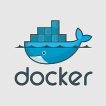
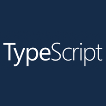
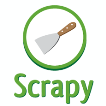
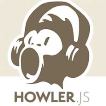
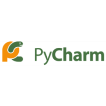
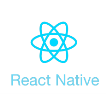
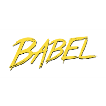

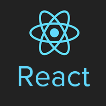

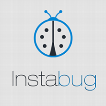
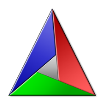
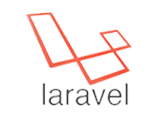
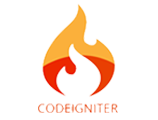


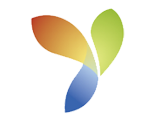

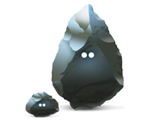

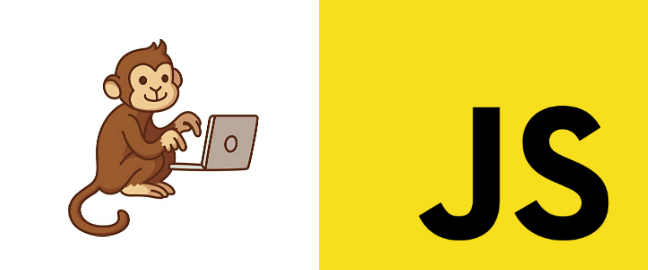
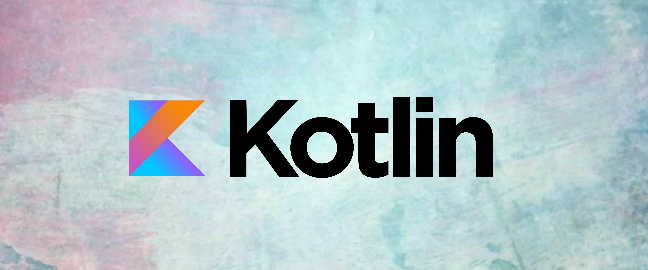


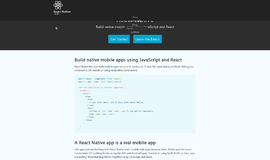
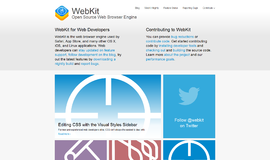
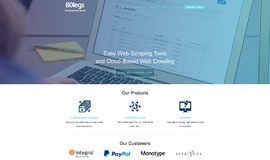
{{CommentsModel.TotalCount}} Comments
Your Comment